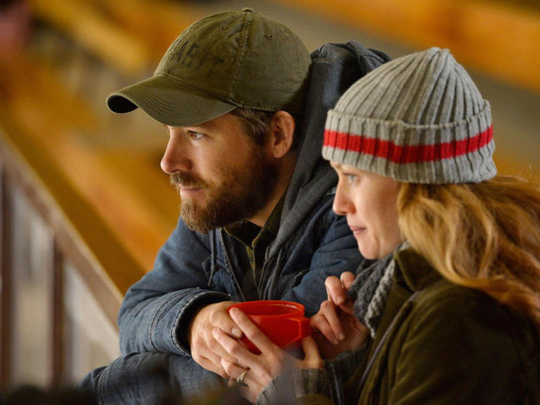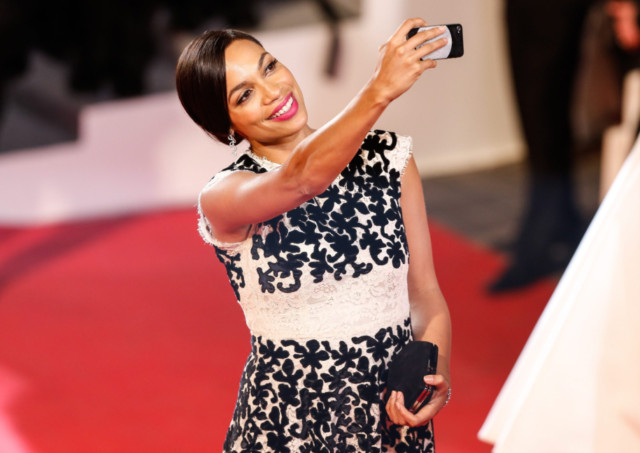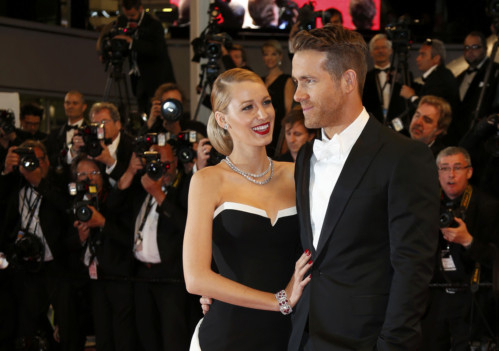
Ryan Reynolds and Rosario Dawson star in Cannes contender The Captive, a Canadian thriller about a powerful, technologically savvy paedophile ring that divided critics at the world’s top film festival on Friday.
A keenly awaited press screening of the picture by Atom Egoyan ahead of the red-carpet premiere drew the first boos of the competition for what one critic called an “asinine, risible plot”, but also a solid round of applause.
The Captive stars Reynolds, best known for comic book hero roles in Green Lantern, X-Men: Wolverine and Blade: Trinity, as a father whose young daughter is abducted and vanishes for eight years.
The film, set in the frigid expanses of rural Ontario, takes a page from the real-life ordeals of kidnap victims such as Natasha Kampusch and Jaycee Lee Dugard, who were held for years against their will by sexual predators.
Cassandra, now seen in her teens, is held in a locked, windowless cellar decorated as a little girl’s bedroom and forced by her captor to appear in videos to lure fresh prey.
The paedophile network not only posts videos of the children’s abuse online, but also installs hidden cameras to capture the suffering of their parents at home, leading one cop to call them “a whole new class of freaks”.
Dawson, who starred in Sin City and Men in Black II, plays the head of a police child victims unit trying to rescue Cassandra who long suspects her father may have been involved in her abduction.
But she herself becomes a target of the ring of well-connected sexual deviants, who want to stop the investigation and exploit her own memories of childhood trauma.
Egoyan, who was nominated for an Oscar for his 1997 drama The Sweet Hereafter about the impact of a tragic bus accident, also wrote the screenplay for The Captive.
He said the abduction of a boy in his own hometown in Canada and the questions of responsibility it raised for everyone in the community had given rise to the project.
“I put the viewer into a place where you’re not sure how far this goes, like how deep this goes, and how implicated you are watching it as well,” he said.
“It’s a territory that I find really powerful.”
Reynolds said his own brother works in a similar unit to the one Dawson leads in the film and was drawn to the script’s examination of the pressures on those trying not to despair while confronting horrific crimes.
“I had never really seen a story that examined it in this way, and that really followed these people trying to cope with what was happening,” he said.
Dawson said the film underscored her own experience working with troubled kids in New York, in which abusers are often those most trusted by both children and their parents.
“I think a lot of time paedophiles are shown to be outcasts of society,” she said. “Actually it could be the person sitting right next to you right now.”
US critic Jordan Hoffman called the film “more fascinating than awful” with “some decent scenes”, despite an “asinine plot”, while Peter Bradshaw of the Guardian blasted it as “so misjudged from start to finish it feels like a terrible dream”.
Industry magazine Variety dismissed the story as “a ludicrous abduction thriller that finds a once-great filmmaker slipping into previously unentered realms of self-parody”.
But French daily 20 minutes hailed it as “absolutely suspenseful” and a “great genre film”.
The Captive is one of three Canadian films in competition in Cannes this year, along with new movies by David Cronenberg and Xavier Dolan, out of 18 vying for the festival’s Palme d’Or top prize.










